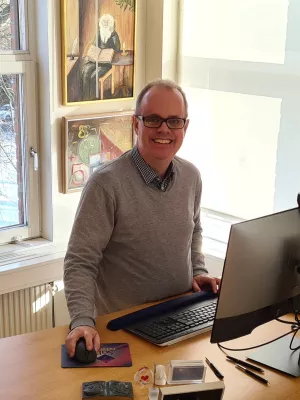
Håkan Carlsson
Överbibliotekarie

User Knowledge Management – How University Libraries Analyse User Needs and Develop Services
Författare
Summary, in English
Avdelning/ar
- Stab
Publiceringsår
2018-06-18
Språk
Engelska
Länkar
Dokumenttyp
Konferensbidrag: abstract
Ämne
- Information Systems, Social aspects
Nyckelord
- User knowlegde management
- methods for quality development
Conference name
The 39th Annual IATUL Conference
Conference date
2018-06-18 - 2018-06-21
Conference place
Oslo, Norway
Status
Published
Projekt
- Survey the Surveyors 2017

